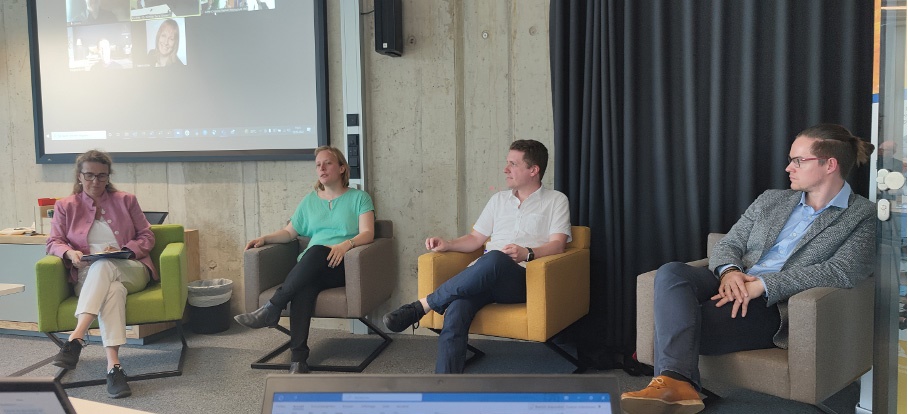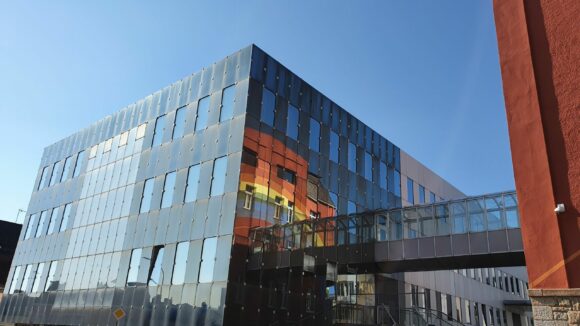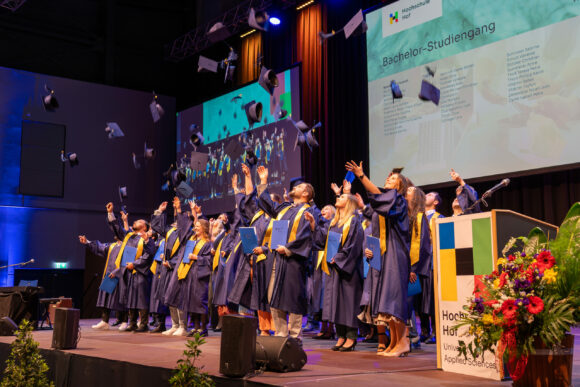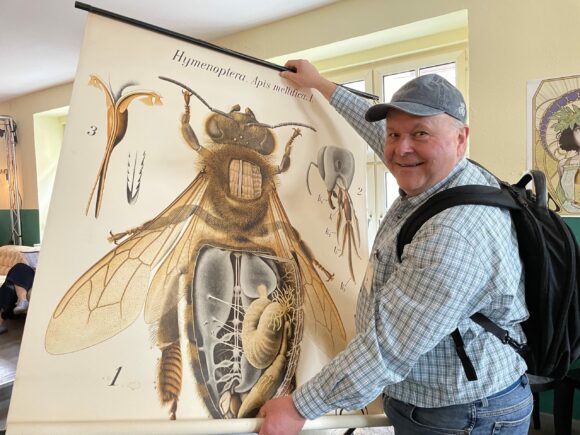Learning from each other and networking the region together beyond our borders to facilitate access to Industrie 4.0 technology for small and medium-sized enterprises – this is the basic idea behind the Digital Regions project.
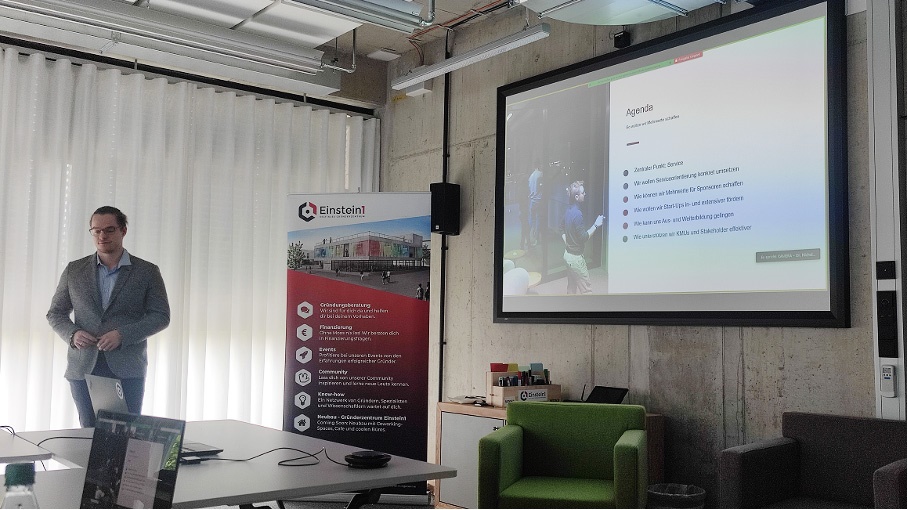
The Digital Incubator Einstein1 at the campus of the university together with the project team invited to the exchange at the incubator.
Presentation of the Digital Regions project
“What is happening in our country in terms of digitalization – And what does the EU have to do with it?” – Under this event title, Dr. Nicholas Derra, Deputy Managing Director of the Digital Incubator Einstein1, spoke about the task of connecting people, jobs, visions and ideas and funding opportunities in the region and beyond.
We’re not a sole-source – That’s why we need an ecosystem beyond our state borders.”
Dr. Nicholas Derra, Deputy Managing Director Digital Business Incubator Einstein1
Katrin Müller, project manager in the Digital Regions project funded by the EU INTERREG program, presented the project and its goals: A group of multipliers from the business community and various regional funding agencies worked to make already proven projects from digitization and automation available for exchange with the Upper Franconian region. Partners spread across Europe work hand in hand here and exchange ideas at eye level: Not everything has to be reinvented, but may already exist in another European region.
Project partners from Ireland and Switzerland
Two project partners were connected via Zoom: Margaret Quinn, project and program manager in Ireland, clarified her perspective on promoting Industry 4.0.
We learned a lot about each partner’s approach to supporting Industrie 4.0. Although we were not able to visit the facilities in person, our partners provided virtual tours that were very valuable.”
Margaret Quinn, ERNACT
Collaboration between European regions – especially those with comparable structures like Upper Franconia and Letterkenny – is valuable in providing a meaningful and broad push for digitization in businesses, she said.
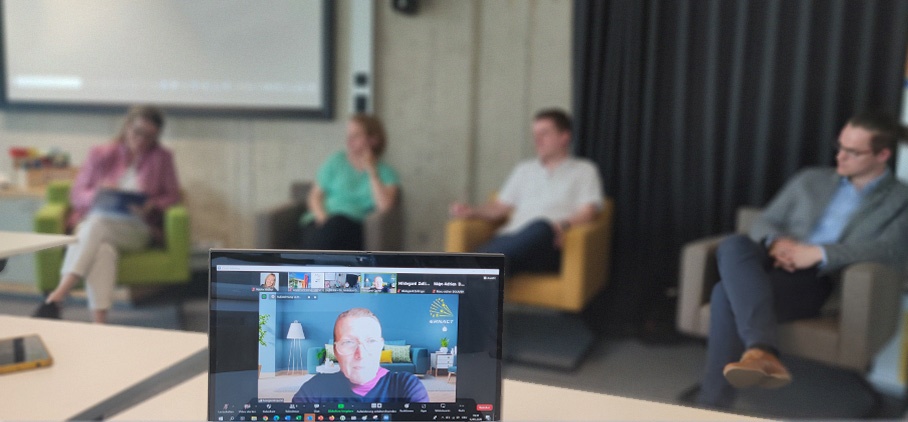
Dr. Dominic Gorecky is head of the Swiss Smart Factory at the Swiss Innovation Park in Biel, a trial park for companies in the manufacturing sector that interested parties from Germany can also visit at any time.
I really appreciated the feedback to us from our project partners – collaboration is key when aligning with other regions in the EU.”
Dr. Dominic Gorecky, Swiss Smart Factory
He, too, emphasized that the Swiss region has very similar challenges as the German, Irish and Portuguese partners: there is a broad-based, traditional SME sector for which start-up programs for digitization are available – but these are not always easy or obvious to access.
Regional analysis
This finding also came to light in the regional analysis conducted by the project in all regions: In Upper Franconia, one-third of the 26 small and medium-sized enterprises surveyed said they were superficially familiar with the concept of Industry 4.0, and just under half declared themselves ready for pilot projects. The main reasons for this are market demand and competitive advantages (70%), differentiation on the market (60%) and testing new concepts (40%). However, companies also reported not having enough time (53%) and resources (35%) to invest in their digitalization and not being aware of initiatives to support I4.0 / digital transformation specifically for SMEs (61%). Similar to European partners in Switzerland and Ireland, there is a wide range of support available in Upper Franconia, but little overview.
Good ways to get information are:
The federal government’s funding database
The interactive map to the economy digital of the IHKs
The Transferlotse Bavaria
Rounding off the event
Johannes Schmölz, Managing Director at Rödental-based start-up nuspace GmbH, rounded off the evening with an insight into his project, in which nuspace is creating a digital twin of the building together with the digital start-up center Einstein1.
In the subsequent discussion on Industry 4.0 and the EU, moderated by Anne-Christine Habbel, Head of Research Marketing, the speakers and the audience discussed their experiences with the structures of the EU, cooperation in their own region and internationally, and the importance of the digitalization of production – Industry 4.0.
